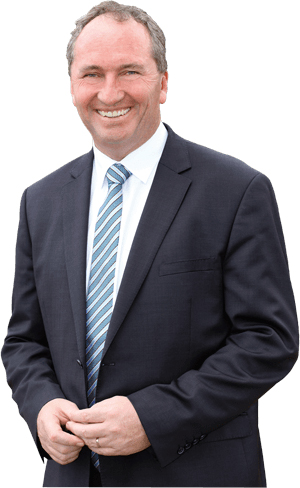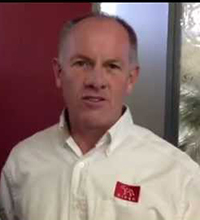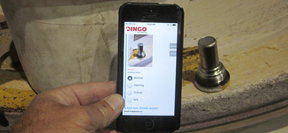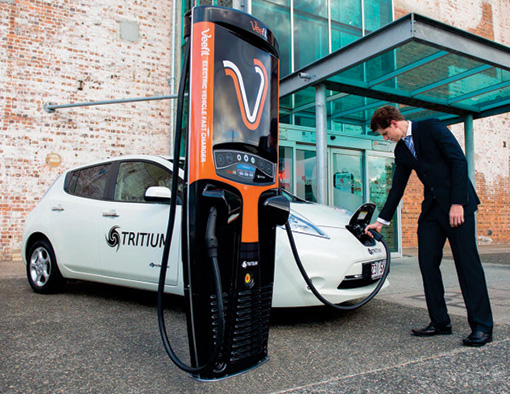THE Australia Arab Chamber of Commerce and Industry (AACCI) is urging the Australian Government to commence negotiations with Saudi Arabia on a Double Taxation Agreement.
“Bilateral investment between Saudi Arabia and Australia, particularly infrastructure, real estate and agriculture, is encumbered because the effective corporate tax rate is up to 50 percent (20% in Saudi Arabia plus up to 30% in Australia)” the AACCI CEO, Suzannah Moss-Wright said.
“As part of the Government’s on-going efforts to improve international competitiveness in Australian business, we encourage the Australian Government to commence negotiations on a double taxation agreement between the two countries.”
Ms Moss-Wright said Australian business would benefit from diversified funding sources. Saudi Arabia is abundant with private financial wealth in excess of US$1 trillion, and growing at a projected rate of 9.3 percent a year between 2014 and 2019, according to the Boston Consulting Group.
"Such monies remain distant whilst the Australian Government requires the Gulf Cooperation Council (GCC) (comprising Bahrain, Qatar, Oman, Kuwait, Saudi Arabia and the UAE) to recommence negotiations on a Free Trade Agreement (FTA), before Australia engages in negotiations on double taxation agreements with the Gulf States," Ms Moss-Wright said.
Australia’s trade in agricultural products with Saudi Arabia, in spite of positive progress in recent years, is lagging far behind its potential, according to the AACCI.
Australian market share of chilled beef imports to Saudi Arabia has increased from 3 percent in 2010 to 7 percent in 2015. Saudi Arabia’s population is expected to grow at 1.5 percent annually over the next decade. It has an expanding middle class demanding higher quality proteins and grains. This presents opportunities for Australian companies involved in dairy, animal feed, beef and sheep farming, said AACCI. 
“Australia could become a strategic partner for Saudi Arabia in its search for investment opportunities to develop greater food security. We anticipate increased investment in Australia from Saudi Arabia if a double taxation agreement were enacted,” the AACCI CEO said. “The Australian Government has developed a compelling value proposition for investment in Northern Australia that could be of interest to Arab investors if an attractive tax regime could be established.”
During the first half of 2015, Australia exported more chilled and frozen meat to countries of the Middle East and North Africa region (MENA) than to China, according to the Federal Department of Agriculture Comparison Table for Calendar YTD.
AACCI advocates broadening Australia’s trade focus, and intensifying attention on the Arab countries of the MENA region to safeguard long-term economic growth in Australia’s agriculture sector. Export market diversification is essential to buffer price variation and demand shocks in specific markets. China’s demand for Australian meat declined 11 percent in the past year.
FTA negotiations with the Gulf Cooperation Council commenced in 2007, and five rounds of discussions followed. No formal discussion has been had since 2009. Australia and the GCC are considering re-commencement of negotiations, however both parties are involved in discussions with other countries that could take precedence over a GCC-Australia Free Trade Agreement.
“It might be a number of years before negotiations on the GCC-Australia FTA formally recommence,” Ms Moss-Wright said.
"n the interim, AACCI urges the Australian Government to commence negotiations on a double taxation agreement with Saudi Arabia. Presently, Australia has 44 ratified double taxation agreements.
"To date, Australia has not commenced negotiations for a double taxation agreement with any Arab league states. Australia had a double taxation agreement with China for 26 years before concluding the FTA in 2014. Similarly a double taxation agreement preceded the FTA with Japan by 44 years and 31 years with Korea. This suggests that double taxation agreements pave the way for free trade agreements.
“A tax treaty with Saudi Arabia would reduce the incidence of double taxation, provide greater tax certainty for business, and increase appeal of each to the other as an investment destination," she said.
"It would also improve access of Australian firms to Saudi Arabia’s $1.2 trillion worth of infrastructure developments currently planned or underway. Saudi Arabia is also mineral rich with significant deposits of bauxite, copper, gold, iron ore, lead, silver, tin as well as non-metallic minerals. With the decline in oil revenues, Saudi Arabia now has an increasing push into precious and base metal mining, presenting an opportunity for Australian contractors and engineering firms to capitalise on our advanced mining service expertise in a growing market.”
AACCI has welcomed the Australian Government announcement on September 21 this year that it intended commencing negotiations on a double taxation agreement with Israel, to whom Australia exported $243 million of merchandise goods in 2014; and imported $710 million of goods.
“The Australian Government recognises that the absence of a double taxation agreement holds back closer bilateral economic and financial linkages, and we support initiatives to remedy this,” Ms Moss-Wright said.
AACCI is also encouraging the Australian Government to similarly commence negotiations on a double taxation agreement with Saudi Arabia, to whom Australia exported $2.26 billion of merchandise goods in 2014; and imported $426 million of mostly fertilisers and plastics.
AACCI also encourages the Australian Government to enter into negotiations for an investment protection agreement with Saudi Arabia.
Currently, Australia has 22 bilateral investment protection agreements. The only country with which both Saudi Arabia and Australia have investment protection agreements is China, the AACCI said.
"This means that to safeguard Saudi Arabia’s investment in Australia, the investor would incorporate a company in China, and use that Chinese company to invest in Australia," Ms Moss-Wright said. "This results in Australia losing the benefit of direct relationships with its investor, potentially limiting further investment in the future and impeding bilateral trade opportunities."
Saudi Arabia is the 19th largest economy in the world with a GDP of US$752 billion in 2014. It is the third-fastest growing economy in the world with an annual average growth rate of 5 percent over the past 10 years. This achievement is only preceded by China and India.
Fortunate to have 25 percent of the world’s proven oil reserves within its borders, and the fourth=largest natural gas reserve in the world, Saudi Arabia represents a compelling prospect for Australian business to develop a commercial relationship.
The Australia Arab Chamber of Commerce and Industry is hosting a seminar at the Four Seasons Hotel, Sydney, commencing at 5:30 pm on Tuesday, October 20, 2015 to discuss agribusiness opportunities for Australian companies in the Arab world, with a particular focus on Saudi Arabia.
“We are honoured that the Ambassador of the Royal Embassy of Saudi Arabia in Australia, His Excellency Nabil Al Saleh will be speaking at our seminar,” said Mohamed Hage, the AACCI (NSW) chairman.
“Following the Ambassador’s keynote address, international trade experts from Meat and Livestock Australia, Rabobank, Export Council of Australia and AACCI will discuss trends in trade of agricultural products between Australia and the Arab world.”
www.austarab.com.au
ends


 How to resolve AdBlock issue?
How to resolve AdBlock issue? 






